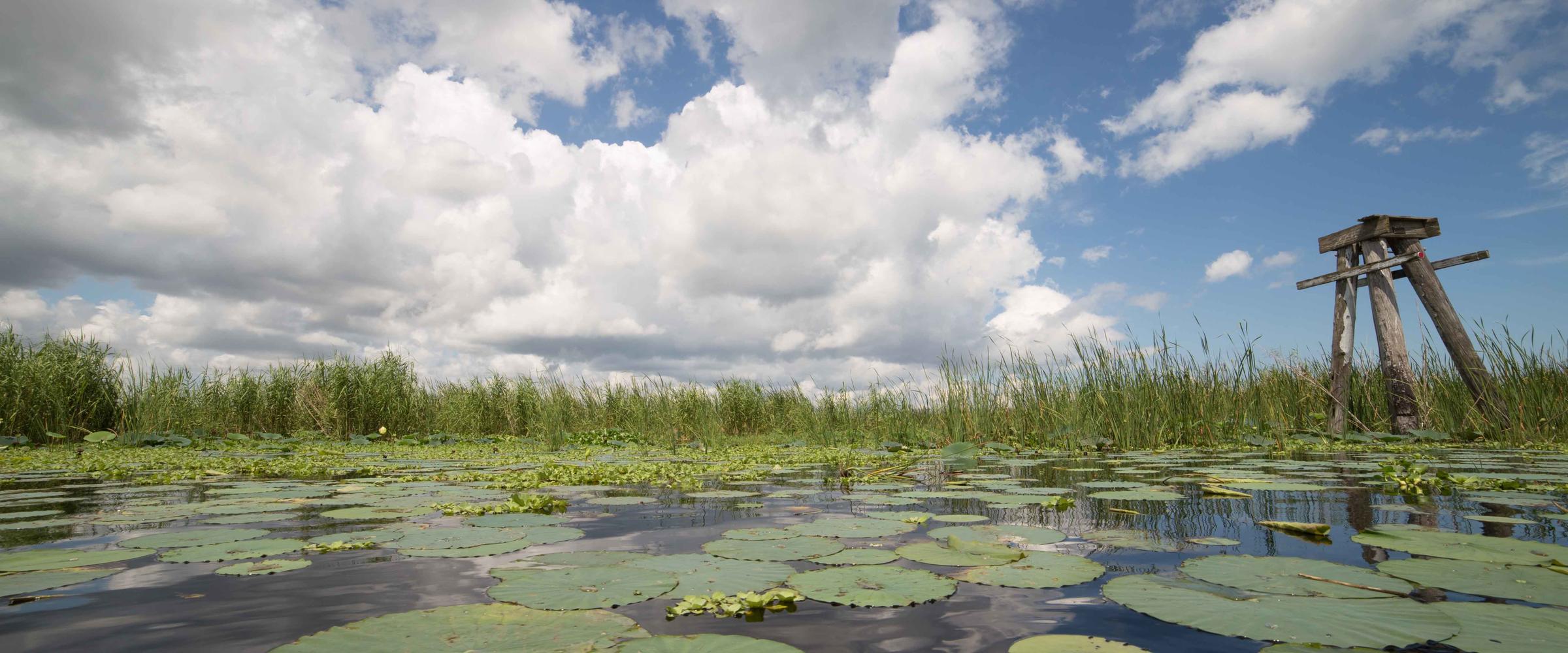One of the earliest reports of ecological damage from Hurricane Irma was from the University of Florida. Forty-four Everglade Snail Kite nests on Lake Okeechobee were destroyed. But that’s not all. Storm surge caused water levels on one side of the lake to rise to 20 feet and drop to 9.5 feet on the other while harmful sediments on the lake bottom were stirred up.
Heavy rainfall from Hurricane Irma caused Lake Okeechobee to rise more than 3.5 feet in a single month. And despite the fact that lake levels in advance of Hurricane Irma were unusually low for this time of year, this one storm brought the lake’s water levels above 17 feet- its highest level since Hurricane Wilma in 2005.
The last time Lake Okeechobee water levels reached 17 feet, the lake lost about 70 square miles of plant communities after they drowned in the deep, dirty water while fisheries collapsed and did not recover for almost a decade. Underwater plant communities serve important nutrient filtration functions and are the nursery for the famed large-mouthed bass and black crappie fisheries. With the loss of water treatment capacity provided by this vegetation, water quality in the lake declined. Audubon scientists warn that a similar scenario is now unfolding.
Hurricane Irma serves as a reminder that there must be additional water storage projects outside of Lake Okeechobee that move water to the right places at the right time and provide a relief valve for water in the lake. Unfortunately, even while the current disaster on Lake Okeechobee is developing, some policymakers are advocating that the lake be intentionally held at its current, damaging deep levels more often in the future. Higher lake levels would create even more dangerous conditions for the people living around the lake and dampen the progress of Everglades restoration. As more extreme weather events hit Florida, Audubon will continue reporting on the health of Lake Okeechobee and advocating for true restoration projects that protect our communities and ecosystems from extreme weather events.




